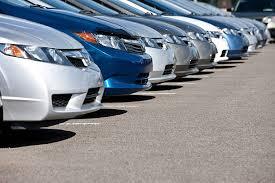
Navigating the Roads Wisely Tips for Efficient Driving and Fuel Economy
December 12, 2023
In an era where environmental consciousness and rising fuel costs are at the forefront of our minds, mastering the art of efficient driving is not just a skill, it's a responsibility. The way we navigate the roads can have a significant impact on both our wallets and the planet. This blog explores practical tips for efficient driving and fuel economy, empowering drivers to make conscious choices that benefit both their finances and the environment.
I. Mindful Driving Habits: The Foundation of Efficiency
A. Smooth Acceleration and Deceleration
One of the cornerstones of efficient driving is mastering the art of smooth acceleration and deceleration. Sudden starts and stops not only waste fuel but also contribute to wear and tear on your vehicle. Gradual acceleration and braking are not only more fuel-efficient but also enhance the overall driving experience.
B. Maintain a Consistent Speed
Consistency is key when it comes to fuel efficiency. Try to maintain a steady speed whenever possible. Frequent changes in speed, such as speeding up and slowing down, can negatively impact your fuel economy. Utilize cruise control on highways to help maintain a constant speed and minimize fuel consumption.
II. Optimize Your Vehicle for Efficiency
A. Proper Tire Maintenance
The condition of your tires plays a crucial role in fuel efficiency. Under-inflated tires create more rolling resistance, requiring more energy (and fuel) to move your vehicle. Regularly check and maintain proper tire pressure according to your vehicle's specifications.
B. Lighten the Load
Carrying unnecessary weight in your vehicle can decrease fuel efficiency. Remove items from your trunk or roof rack that you don't need for your journey. Every extra pound can contribute to increased fuel consumption, so travel light to maximize efficiency.
III. Smart Vehicle Management
A. Regular Maintenance Checks:
A well-maintained vehicle is an efficient vehicle. Regularly scheduled maintenance, such as oil changes, air filter replacements, and engine tune-ups, ensures that your vehicle operates at peak efficiency. Neglecting maintenance can lead to decreased fuel economy and increased emissions.
B. Use the Right Fuel
Make sure to use the recommended fuel type for your vehicle. Using a higher-octane fuel than required does not necessarily result in better performance and can be a needless expense. Consult your vehicle's manual to determine the optimal fuel for your engine.
IV. Strategic Driving Practices
A. Plan Your Routes
Planning your routes in advance can help you avoid unnecessary traffic and reduce the overall distance travelled. Utilize navigation apps that provide real-time traffic updates and suggest the most fuel-efficient routes, saving both time and fuel.
B. Avoid Excessive Idling
Idling consumes fuel without any mileage gain. If you anticipate being stationary for an extended period, consider turning off your engine. Modern vehicles consume less fuel when restarted than they do when idling for an extended time.
V. Embrace Fuel-Efficient Technologies
A. Hybrid and Electric Vehicles
Consider investing in a hybrid or electric vehicle if it aligns with your driving needs. These vehicles use a combination of traditional combustion engines and electric power, significantly reducing fuel consumption and emissions.
B. Start-Stop Systems
Many modern vehicles are equipped with start-stop systems that automatically turn off the engine when the vehicle is stationary, such as at traffic lights. This feature helps conserve fuel and reduce emissions, especially in city driving conditions.
VI. Driving with Environmental Stewardship in Mind
A. Car Pooling and Ride Sharing
Explore carpooling or ride-sharing options to reduce the number of vehicles on the road. Sharing rides not only minimizes traffic congestion but also contributes to lower fuel consumption per passenger.
B. Eco-Driving Apps
Take advantage of eco-driving apps that provide real-time feedback on your driving habits and suggest improvements. These apps can help you track your fuel efficiency and encourage mindful driving.
Conclusion
Efficient driving and fuel economy are not just buzzwords; they are practical steps toward a more sustainable and cost-effective future. By adopting mindful driving habits, optimizing your vehicle, and embracing fuel-efficient technologies, you can contribute to reducing your environmental footprint and saving money on fuel expenses. As responsible drivers, let's pave the way for a more efficient and eco-friendly journey on the roads, ensuring that every mile travelled is a step towards a greener, more sustainable future.
Leave a Reply
Related Products
You Might Like Also

How to Get the Best Value for Money on New Cars
When buying a new car in Pakistan, securing the best value involves more than just finding the lowest price. Start by thoroughly researching different models and brands, understanding your needs, and setting a realistic budget. Negotiate based on the invoice price and look for incentives and rebates. Evaluate the total cost of ownership, including fuel efficiency, maintenance, insurance, and depreciation. Consider additional value options like certified pre-owned vehicles or package deals. Finally, review the contract carefully and understand the warranty before finalizing the purchase to ensure a smooth and cost-effective buying experience. Read More

Benefits of Pre-Purchase Car Inspections in Karachi
Buying a used car in Karachi can be daunting, but a pre-purchase inspection offers numerous benefits, ensuring a wise investment. This thorough evaluation uncovers hidden issues, verifies safety and condition, helps negotiate a fair price, avoids future repair costs, provides peace of mind, evaluates market value, confirms mileage accuracy, and reviews the car's history. These inspections are invaluable for securing a reliable and safe vehicle, making them essential for both first-time buyers and experienced car owners. Read More

Minimally Invasive Techniques in Sports Injury Surgery
Minimally invasive surgery (MIS) has revolutionized sports injury treatment in orthopedic surgery, offering benefits such as reduced recovery times, less post-operative pain, and minimal scarring. This blog explores the principles of MIS, including the use of small incisions and endoscopic visualization, and its advantages like faster recovery and cosmetic benefits. It highlights applications in sports injury surgery, such as arthroscopic procedures for ACL reconstruction, meniscus repair, and rotator cuff repair, as well as soft tissue repairs. Prominent surgeons in Karachi, like Dr. Shohab Hyder and Dr. Kamran Hameed, are utilizing MIS techniques to provide effective and patient-centered care for athletes. The blog emphasizes the importance of consulting with a qualified orthopedic surgeon to determine the suitability of MIS for individual injuries and following rehabilitation guidelines for optimal recovery. Read More

The Role of Extended Warranties in Selling Your Car
Extended warranties can significantly enhance the sale of your car by increasing its attractiveness, boosting buyer confidence, and potentially raising the resale value. For sellers, warranties offer a competitive edge, higher perceived value, and a smoother selling process. Buyers benefit from financial protection and assurance of vehicle quality. Key considerations include the cost vs. benefit of the warranty, transferability, and market conditions. To maximize the impact, highlight the warranty in listings, provide detailed documentation, and use it as a selling point during negotiations. Read More

The Future of MG Car Prices in Pakistan’s Market
The future of MG car prices in Pakistan will be influenced by a range of factors including economic conditions, market demand, local production, technological advancements, regulatory changes, brand strategy, and consumer trends. Economic fluctuations, competition, and technological innovations will play key roles in shaping pricing. Understanding these dynamics will help buyers, investors, and industry observers anticipate price changes and make informed decisions in the evolving automotive market. Read More

How to Get Car Insurance for Older Vehicles in Pakistan
Insuring older vehicles in Pakistan involves understanding the specific needs of your car, including its age and condition. Start by evaluating the importance of insurance, explore coverage options like third-party liability, comprehensive, and third-party fire and theft. Gather necessary documents, compare insurance providers, and consider specialized insurers for classic or high-risk vehicles. Negotiate policy terms, maintain your vehicle to reduce costs, and renew your policy annually to ensure ongoing protection. Proper insurance for older cars ensures financial security and peace of mind. Read More










